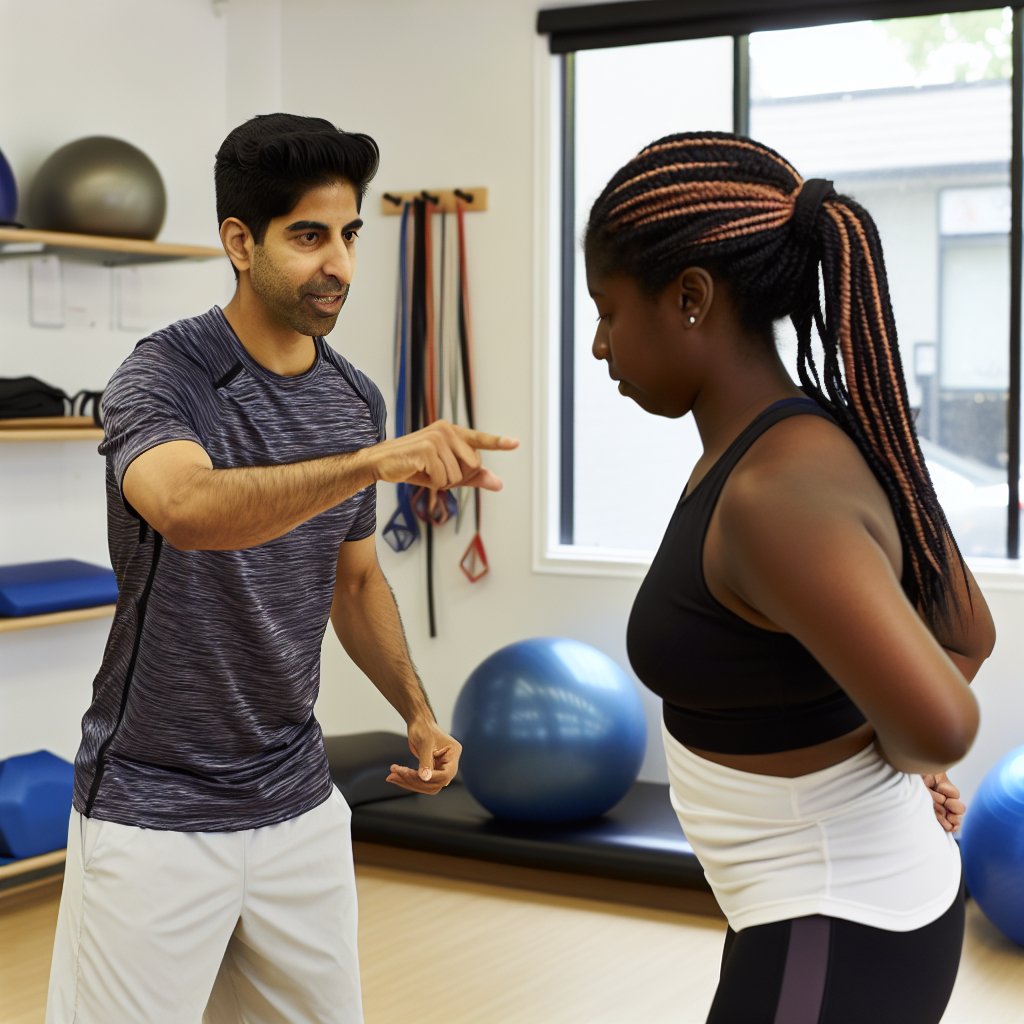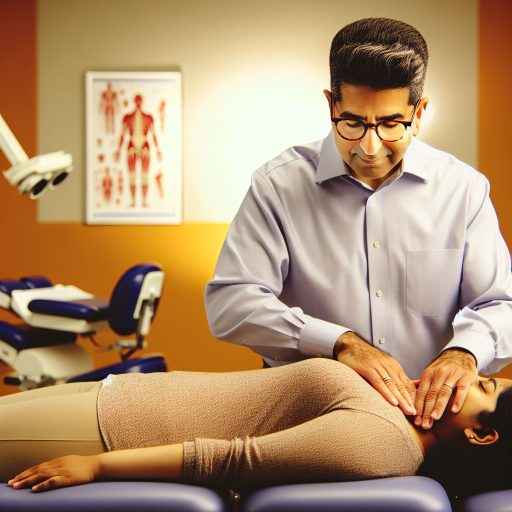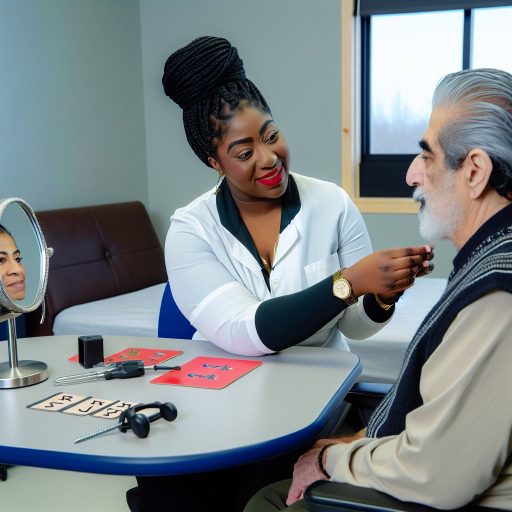Understanding the Role of a Kinesiologist in Canada
Defining Kinesiology
Kinesiology focuses on human movement and physical activity.
Kinesiologists study biomechanics, exercise physiology, and motor control.
Moreover, they promote health through movement and exercise interventions.
Areas of Practice
Kinesiologists work in various settings, including clinics and fitness centers.
They also find opportunities in rehabilitation facilities and corporate wellness programs.
Additionally, some kinesiologists pursue careers in research and education.
Methods and Techniques
Kinesiologists use assessments to evaluate movement patterns and abilities.
They develop personalized exercise programs based on individual needs.
Furthermore, they may utilize modalities like manual therapy and electrotherapy.
Collaboration with Other Professionals
Kinesiologists often collaborate with healthcare professionals.
They work with physiotherapists, occupational therapists, and doctors.
This teamwork enhances patient care and rehabilitation outcomes.
Contributions to Community Health
Kinesiologists promote active lifestyles in communities.
They conduct workshops and seminars on health and wellness topics.
Furthermore, kinesiologists engage in public health initiatives to reduce sedentary behavior.
Educational Requirements for Becoming a Kinesiologist
Overview of Kinesiology Programs
Kinesiology programs focus on the study of human movement and performance.
These programs blend science and practical application effectively.
Some universities in Canada offer specialized kinesiology degrees.
Each program may have a different curriculum structure.
Undergraduate Degree Requirements
An undergraduate degree is essential for aspiring kinesiologists.
Most kinesiology programs require a high school diploma as a prerequisite.
Courses in biology, chemistry, and physics are highly recommended.
Students typically earn a Bachelor of Science in Kinesiology.
This degree usually takes four years to complete.
Graduate Education for Advanced Specialization
Pursuing a graduate degree can enhance career opportunities.
Unlock Your Career Potential
Visualize a clear path to success with our tailored Career Consulting service. Personalized insights in just 1-3 days.
Get StartedMany kinesiologists choose to obtain a Master’s degree in Kinesiology.
A Master’s program generally includes advanced coursework and research.
Some kinesiologists may also pursue a PhD for academic or research careers.
Certification and Licensing Requirements
Certification is essential for practicing kinesiologists in Canada.
Each province may have specific licensing requirements.
Candidates must complete a recognized kinesiology program.
They also need to pass a comprehensive exam.
Obtaining certification demonstrates professional competency.
Continuing Education and Professional Development
Kinesiologists must engage in ongoing education to maintain credentials.
Workshops and seminars are valuable for skill enhancement.
Staying updated on industry trends is crucial for career advancement.
Professional associations offer resources for continued learning.
Choosing the Right University Program for Kinesiology
Understanding Kinesiology
Kinesiology involves the study of human movement.
This field integrates physiology, biomechanics, and psychology.
It aims to enhance physical activity and rehabilitation.
Identifying Accredited Programs
Start by researching universities offering kinesiology degrees.
Ensure the program is accredited by the relevant authorities.
The Canadian Kinesiology Alliance (CKA) provides valuable resources.
Use CKA’s website to find accredited programs across Canada.
Evaluating Program Curriculum
Examine the curriculum to ensure it meets your career goals.
Many programs offer specializations in areas like sports science.
Look for courses that cover anatomy and exercise physiology.
Hands-on practicums are essential for real-world experience.
Considering Faculty Expertise
Research the faculty members in the kinesiology department.
Experienced instructors enhance the quality of education.
Look for faculty involved in research or professional practice.
Attend open houses to interact with faculty and ask questions.
Assessing Facilities and Resources
Visit the campus to evaluate its facilities.
Modern labs and equipment enhance learning opportunities.
Check if they offer access to research projects and internships.
Strong support services can significantly impact your education.
Analyzing Internship Opportunities
Internships provide valuable hands-on experience.
Inquire about partnerships with local health organizations.
Programs with strong internship placements can enhance employability.
Networking opportunities during internships are also beneficial.
Factoring in Location and Cost
Consider the university’s location in terms of lifestyle preferences.
Urban settings often provide more internship and job opportunities.
Evaluate tuition costs and available financial aid options.
Compare the overall value of education against budget constraints.
Gathering Student Feedback
Reach out to current students and alumni for insights.
They can provide personal experiences about the program’s strengths.
Check online reviews to understand the student community’s dynamics.
Personal recommendations can guide you toward the right program.
See Related Content: Key Dental Tools and Technologies Every Dentist Uses
Important Skills and Competencies for Kinesiologists
Understanding Human Anatomy and Physiology
Kinesiologists require a solid understanding of human anatomy.
This knowledge helps them assess body movements accurately.
Additionally, they need to grasp physiological processes that affect physical performance.
Assessment and Evaluation Skills
Effective assessment skills are crucial for kinesiologists.
They analyze client needs through various evaluation methods.
Observation, testing, and feedback play significant roles in this process.
Communication Skills
Strong communication skills enhance client relationships.
Kinesiologists must convey complex information clearly.
They also need to listen to client concerns attentively.
Problem-Solving Abilities
Kinesiologists face diverse challenges in patient care.
They must apply critical thinking to develop effective solutions.
Flexibility and adaptability are vital in this process.
Practical Application of Techniques
Hands-on skills in exercise programming are essential.
Kinesiologists design tailored programs for each client.
Moreover, they need to monitor and adjust these programs regularly.
Teamwork and Collaboration
Kinesiologists often work with other healthcare professionals.
Collaboration enhances patient care and recovery outcomes.
Working effectively with teams requires respect and open communication.
Commitment to Continuing Education
The field of kinesiology evolves continually.
Kinesiologists should pursue ongoing professional development.
Staying current with research and techniques improves practice.
Delve into the Subject: Steps To Becoming A Certified Audiologist
Practical Experience: Internships and Co-op Programs
The Importance of Practical Experience
Gaining practical experience is essential for aspiring kinesiologists.
Internships and co-op programs provide valuable real-world insights.
These experiences enhance your understanding of theoretical concepts.
Furthermore, they allow you to apply your skills in professional settings.
Types of Practical Experience
Internships and co-op programs vary in structure and duration.
Internships are often shorter and can be unpaid or paid roles.
On the other hand, co-op programs are typically part of an academic curriculum.
These programs usually alternate between academic study and work experience.
Finding Opportunities
Numerous resources can help you locate internships and co-op programs.
University career centers often maintain listings of available positions.
Networking with professionals in the field can open new doors.
Additionally, online job boards frequently list relevant opportunities.
Preparing for Internships and Co-op Programs
A strong resume is critical to securing a position.
Tailor your resume to highlight relevant coursework and skills.
Moreover, practice interviewing to increase your chances of success.
Many universities offer mock interview sessions to help students.
Maximizing Your Experience
Once you secure an internship or co-op, be proactive and engaged.
Ask questions to deepen your understanding of workplace dynamics.
Seek feedback regularly to improve your skills continuously.
Finally, maintain professional relationships for future opportunities.
Find Out More: Benefits Of Pursuing A Career In Speech Pathology

The Process of Applying for Licensure in Canada
Understanding the Role of Kinesiologists
Kinesiologists play a crucial role in promoting health and wellness.
They work with individuals to improve physical function and quality of life.
Understanding their responsibilities is essential for prospective applicants.
Educational Requirements
Start by obtaining a degree in kinesiology from an accredited institution.
This degree typically covers essential topics in physical health and movement science.
Courses in anatomy, physiology, and biomechanics are particularly important.
Ensure your program includes practical experience through internships or workshops.
Certification Exams
After completing your degree, prepare for the certification exam.
The exam assesses your knowledge and skills relevant to kinesiology.
Many provinces require successful completion of this examination for licensure.
Check with the local regulatory body for specific requirements.
Application Process
Begin the application process by gathering necessary documentation.
Your documents should include proof of education and exam results.
Complete the application form provided by your province’s regulatory body.
Be prepared to submit references from professionals in the field.
Fees and Processing Time
Be aware of the fees associated with applying for licensure.
These fees vary by province, so check the specific amounts required.
The processing time for applications can also differ, so plan accordingly.
Some provinces may offer expedited processing for an additional fee.
Maintaining Licensure
Once licensed, you must maintain your credentials through continuing education.
Most provinces require a specific number of professional development hours annually.
Stay informed about new research and best practices in kinesiology.
This ensures you continue to provide high-quality service to your clients.
Uncover the Details: Audiologists And The Connection To Overall Wellness
Continuing Education and Professional Development for Kinesiologists
The Importance of Lifelong Learning
Kinesiologists must commit to lifelong learning to stay relevant.
Continuing education enhances knowledge and skills in the field.
This makes practitioners more effective in their roles.
Furthermore, ongoing education helps to meet regulatory requirements.
Available Continuing Education Opportunities
Kinesiologists have access to various continuing education programs.
Universities and colleges offer specialized courses in kinesiology.
Professional associations also provide workshops and seminars.
Online platforms host webinars covering new trends and techniques.
Requirements for Professional Development
Each province in Canada has specific requirements for continuing education.
Check your provincial regulatory body for precise guidelines.
Most provinces require a certain number of hours of education every year.
This may include attending conferences or obtaining certifications.
Networking and Collaboration Opportunities
Networking is essential for professional growth as a kinesiologist.
Engaging with peers can lead to new opportunities and ideas.
Professional associations often host networking events.
These events foster collaboration among practitioners.
Staying Informed on Industry Developments
Staying up to date with industry changes is crucial.
Subscribe to relevant journals and publications for updates.
Follow leading organizations and experts on social media.
Engaging in discussions increases knowledge of emerging research.
Ongoing Educational Commitment
Lastly, the commitment to ongoing education defines a successful kinesiologist.
Embrace opportunities to learn and grow in this dynamic profession.
Ultimately, this will enhance the quality of care provided to clients.
Potential Career Paths and Job Opportunities for Kinesiologists
Clinical Settings
Kinesiologists often work in clinical environments supporting rehabilitation efforts.
They collaborate with physiotherapists, chiropractors, and occupational therapists.
This teamwork enhances patient recovery through tailored exercise programs.
Furthermore, kinesiologists may conduct assessments to determine an individual’s functional abilities.
Examples include sports injury rehabilitation and post-surgical recovery plans.
Fitness and Wellness Industry
Kinesiologists thrive in the fitness and wellness sector, promoting overall health.
They design individualized fitness plans based on clients’ health goals.
Additionally, kinesiologists instruct personal training and group exercise classes.
Their expertise helps in prevention strategies and improving physical performance.
Many also work as wellness coaches, guiding lifestyle changes.
Research and Education
Kinesiologists can engage in research, contributing to fitness and health knowledge.
They investigate the effects of exercise on health conditions.
Many work in academic settings, teaching future kinesiologists.
Additionally, conducting seminars or workshops on health topics is common.
Research roles often focus on innovative techniques in physical rehabilitation.
Corporate Wellness Programs
Another avenue is developing corporate wellness programs for companies.
Kinesiologists design programs that promote employee health and productivity.
They conduct fitness assessments to tailor services for corporate needs.
This may include ergonomic evaluations and stress management workshops.
Consequently, companies see a reduction in health-related expenses.
Sports Organizations
Working with sports teams is another popular path for kinesiologists.
They develop conditioning and training programs for athletes.
In addition, they may provide on-site assessments during events or practices.
Their role enhances athlete performance and minimizes injury risks.
Kinesiologists also analyze biomechanics to improve training methods.
Government and Community Health Initiatives
Kinesiologists participate in public health initiatives aimed at increasing community wellness.
They develop programs focusing on active living and healthy lifestyles.
Additionally, these professionals advocate for physical education in schools.
They may work with local government agencies to promote community resources.
Fostering collaborations with other health professionals enhances these efforts.
Additional Resources
a quick Kinesiology guide for employment outcomes : r/Kinesiology
Older adults’ experiences and perceived impacts of the Aging …




